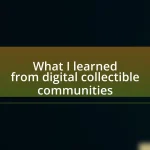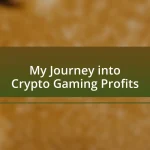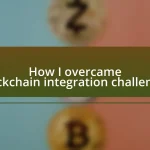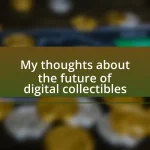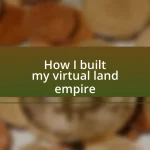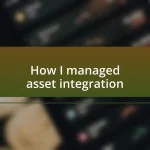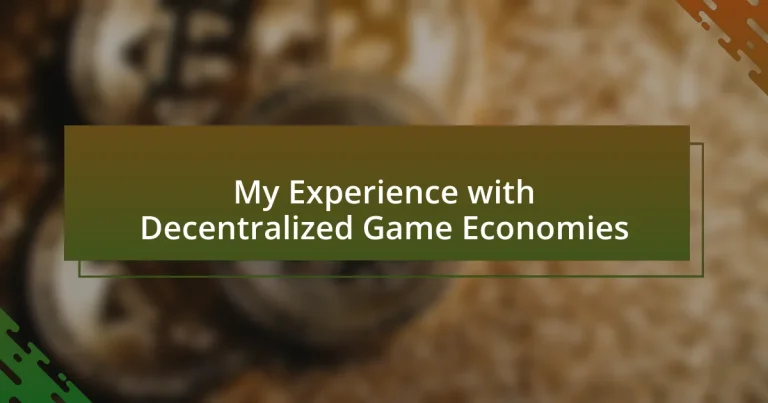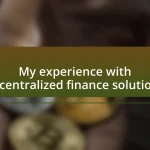Key takeaways:
- Decentralized game economies empower players by providing true ownership of in-game assets through blockchain technology, creating emotional investment and engagement.
- These economies promote player agency, transparency, and innovative monetization opportunities, allowing players to become active contributors rather than just consumers.
- Common models such as play-to-earn and token-based economies offer unique incentives, enriching gameplay and fostering vibrant communities.
- Future trends indicate a merging of decentralized finance with gaming, highlighting potential for interoperability and player-driven governance, enhancing player involvement and economic dynamics.
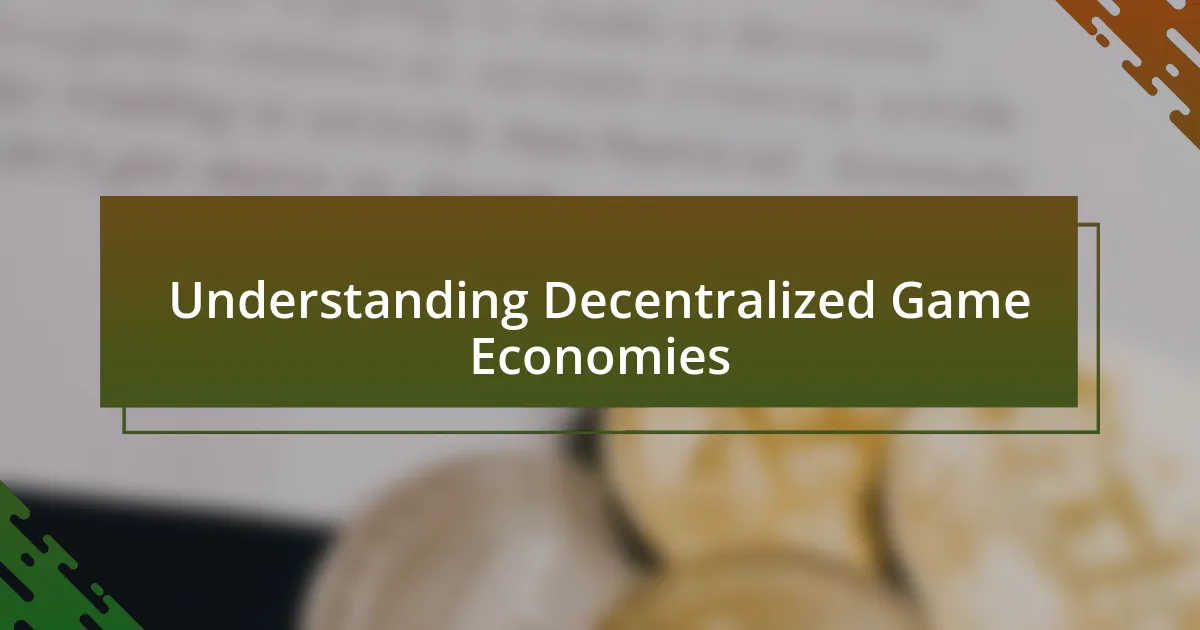
Understanding Decentralized Game Economies
Decentralized game economies are fascinating because they empower players in ways traditional games often don’t. I remember the thrill of selling my in-game items for cryptocurrency, which not only gave me a tangible reward but also made me feel like a stakeholder in the game’s ecosystem. Isn’t it incredible how a simple digital item can hold real value, effectively blurring the lines between gaming and finance?
One of the most compelling aspects of decentralized economies is the concept of ownership. Unlike conventional games where developers retain control over assets, in decentralized games, players truly own their items through blockchain technology. This made me reflect on my gaming journey: how meaningful is it to own something that could potentially increase in value? The answer is profound; it adds a layer of emotional investment that transforms our gaming experiences.
Moreover, decentralized game economies can foster unique community dynamics. I’ve seen how these environments create a natural blend of cooperation and competition among players. When I participated in a community-led marketplace, the excitement of trading with others who shared my passion felt exhilarating. What about you—have you ever felt a deeper connection to a game because of its economic structure? For me, it became more than just play; it was a collaborative adventure.
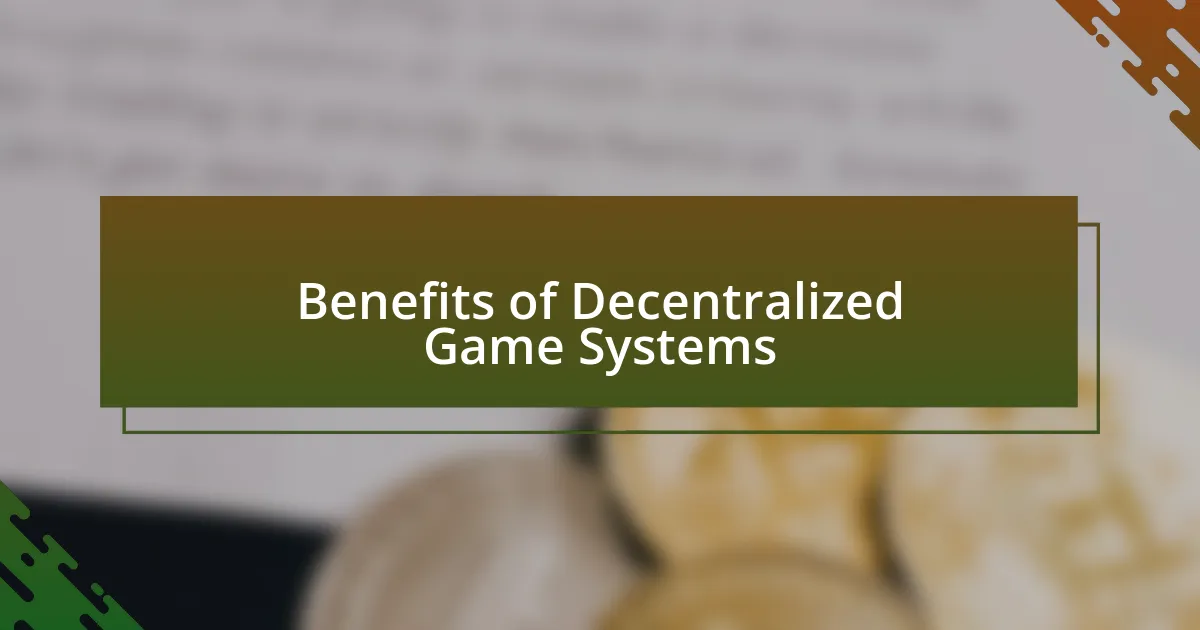
Benefits of Decentralized Game Systems
The benefits of decentralized game systems are quite significant, particularly in terms of player agency. I remember the first time I really understood the concept of true ownership in a game. Instead of just borrowing an item, I could sell it, trade it, or use it as I saw fit. This sense of freedom completely changed how I approached the game, turning what was once a fleeting experience into an impactful journey where I felt my choices mattered.
Another fascinating benefit is transparency. In my experience, knowing that the game’s economy operates on a blockchain instilled a sense of trust that traditional games often lack. Whenever I’ve stumbled upon a hidden gem of an item, I could verify its history and value right away. It was reassuring to know that the marketplace wasn’t influenced by hidden algorithms or developer biases. This transparency allowed me to make informed decisions, enhancing my overall gaming experience.
Lastly, decentralized game economies promote innovative monetization methods for developers and players alike. I recall discussing with fellow gamers how we could earn by creating valuable content within the game. This shift to a creator-driven model appealed to my entrepreneurial side; it felt like we were not just players, but active contributors to the ecosystem. As such, the game transformed into a platform for personal expression and financial opportunity, enriching both the gameplay and the community.
| Benefit | Personal Experience |
|---|---|
| Player Agency | True ownership allows players to decide the fate of their in-game assets. |
| Transparency | Blockchain ensures trust and accountability in valuing items. |
| Monetization | Players become creators, contributing to the gaming economy and benefiting financially. |

Common Models in Game Economies
Common Models in Game Economies encompass various structures that shape how players interact and trade within virtual worlds. From my encounters, I’ve seen models evolve and adapt, particularly in decentralized ecosystems. I find the concepts of play-to-earn, free-to-play, and token-based economies to be exceptionally intriguing, each offering unique incentives and experiences for players.
- Play-to-Earn: Players are rewarded with cryptocurrencies or NFTs for achieving objectives. I remember the thrill when I completed a challenging quest and unlocked a rare NFT; the sense of accomplishment was unmatched, knowing I could trade it for real value.
- Free-to-Play: Users can access the game without any upfront costs but may make purchases to enhance their experience. It amazed me how this model attracts a wider audience, allowing people to try out games with no financial commitment before diving deeper.
- Token-Based Economies: These allow players to use a specific cryptocurrency as the primary in-game currency. In one game I played, using tokens provided fluidity in transactions, making trading a seamless and engaging experience.
The nuances of these models not only diversify gameplay but also create rich communities where players can exchange ideas, strategies, and, of course, assets.
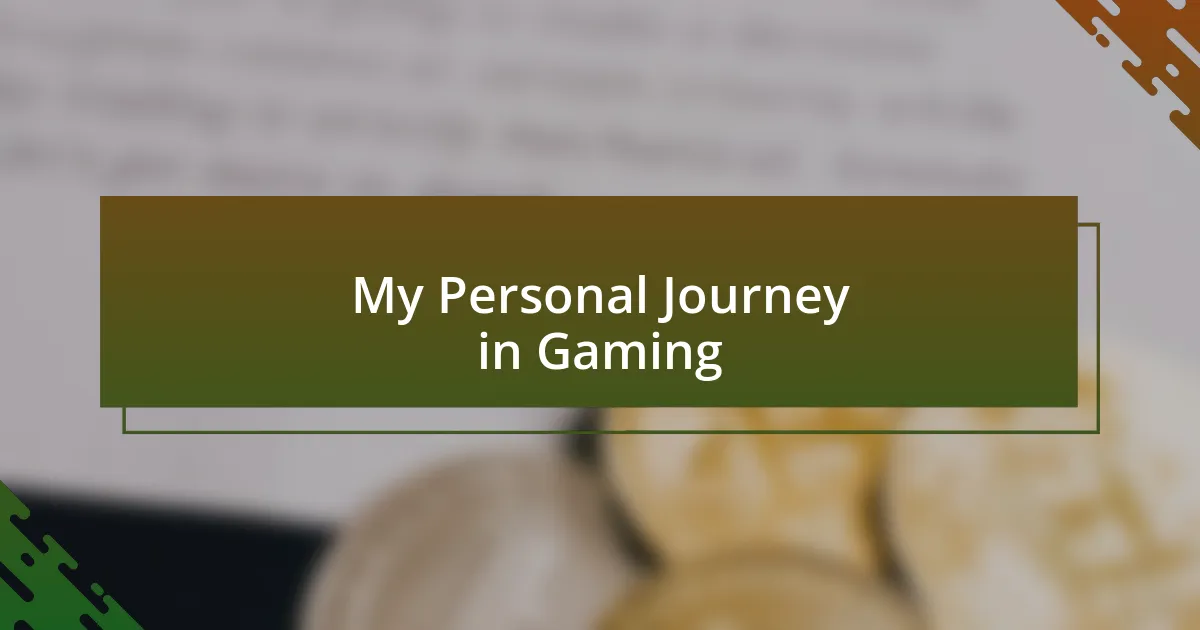
My Personal Journey in Gaming
Gaming has always been a pivotal part of my life, a way for me to escape reality and immerse myself in worlds filled with adventure. I still vividly recall my first gaming experience, sitting in front of an old console, joystick in hand, as I navigated through pixelated landscapes. The excitement of leveling up and achieving goals sparked a passion that has only deepened over the years.
As my journey progressed, I began to notice how gaming evolved alongside me. Games shifted from purely recreational to platforms for real economic interactions. I remember the moment I invested my time into a play-to-earn game and realized that what I did could have tangible results. The rush of watching my in-game achievements translate to actual value was a revelation; it made me ponder, could gaming be more than just entertainment?
In exploring different gaming models, I found a community that resonated with my experiences. I learned that the blend of free-to-play and token-based economies opened doors to wider participation. I was amazed by how players, like me, contributed to a vibrant marketplace, each exchange contributing to a larger narrative. Isn’t it fascinating how our collective enthusiasm has the power to shape virtual economies?
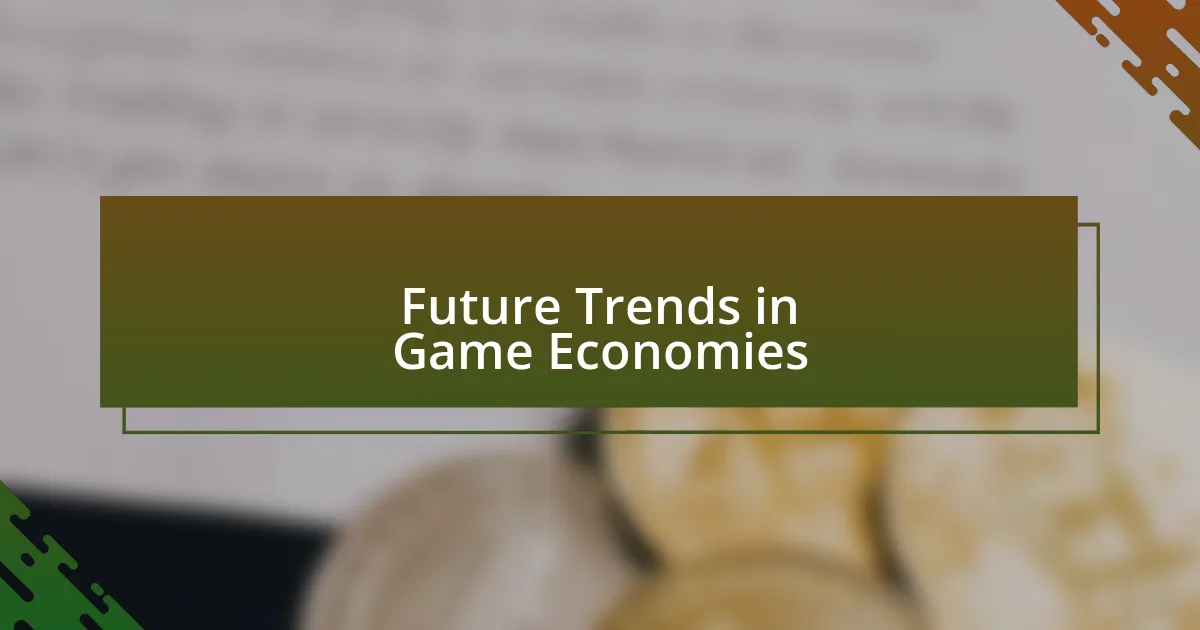
Future Trends in Game Economies
As I look ahead, I see decentralized finance (DeFi) increasingly merging with gaming. Just the other day, I was reflecting on how the idea of lending and borrowing assets could enhance gameplay. Imagine being able to leverage your in-game items or currency much like you do with cryptocurrencies. This could not only empower players financially but also redefine the way we perceive the value of digital goods.
Moreover, the concept of interoperability between different games is something that’s really started to excite me. What if characters or items from one game could be used in another? That thought makes my inner gamer giddy. I remember trading unique skins in one game and wishing I could use them in another; interoperability could turn that wish into a reality, creating an ecosystem where our investments stretch further across various platforms.
I can’t help but wonder about the rise of player-driven governance models. Imagine if we, the players, had a direct say in the game’s economy or the development direction. The feeling of being part of a community that shapes the game’s future resonates deeply with me. It’s a shift from being passive consumers to active contributors—what could be more empowering than having a stake in a world we’ve invested so much time and emotion into?




